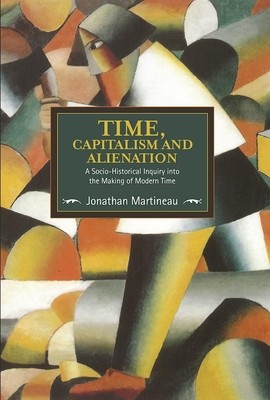
- We will send in 10–14 business days.
- Author: Jonathan Martineau
- Publisher: Haymarket Books
- ISBN-10: 160846640X
- ISBN-13: 9781608466405
- Format: 15 x 22.6 x 1.3 cm, softcover
- Language: English
- SAVE -10% with code: EXTRA
Reviews
Description
In Time, Capitalism and Alienation: A Socio-Historical Inquiry into the Making of Modern Time, Jonathan Martineau offers an account of the histories of social time in Europe, from the innovation of the clock around 1300 to the making of World Standard Time around the turn of the twentieth century. Approaching 'time' as a social phenomenon traversed by various power and property relations, this work provides a socio-theoretical and historical analysis of the relationship between clock-time and capitalist social relations, problematizing the rise to hegemony of a clock-time regime harnessing various social temporalities to the purpose of capitalist development. This book sheds light on the alienating tendencies of the modern temporal regime and the relationship between time and modern economic developmentEXTRA 10 % discount with code: EXTRA
The promotion ends in 19d.09:59:27
The discount code is valid when purchasing from 10 €. Discounts do not stack.
- Author: Jonathan Martineau
- Publisher: Haymarket Books
- ISBN-10: 160846640X
- ISBN-13: 9781608466405
- Format: 15 x 22.6 x 1.3 cm, softcover
- Language: English English


Reviews